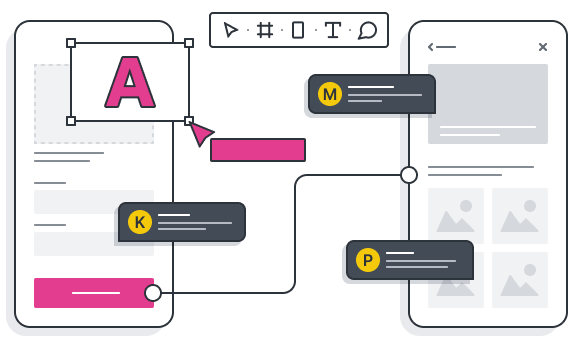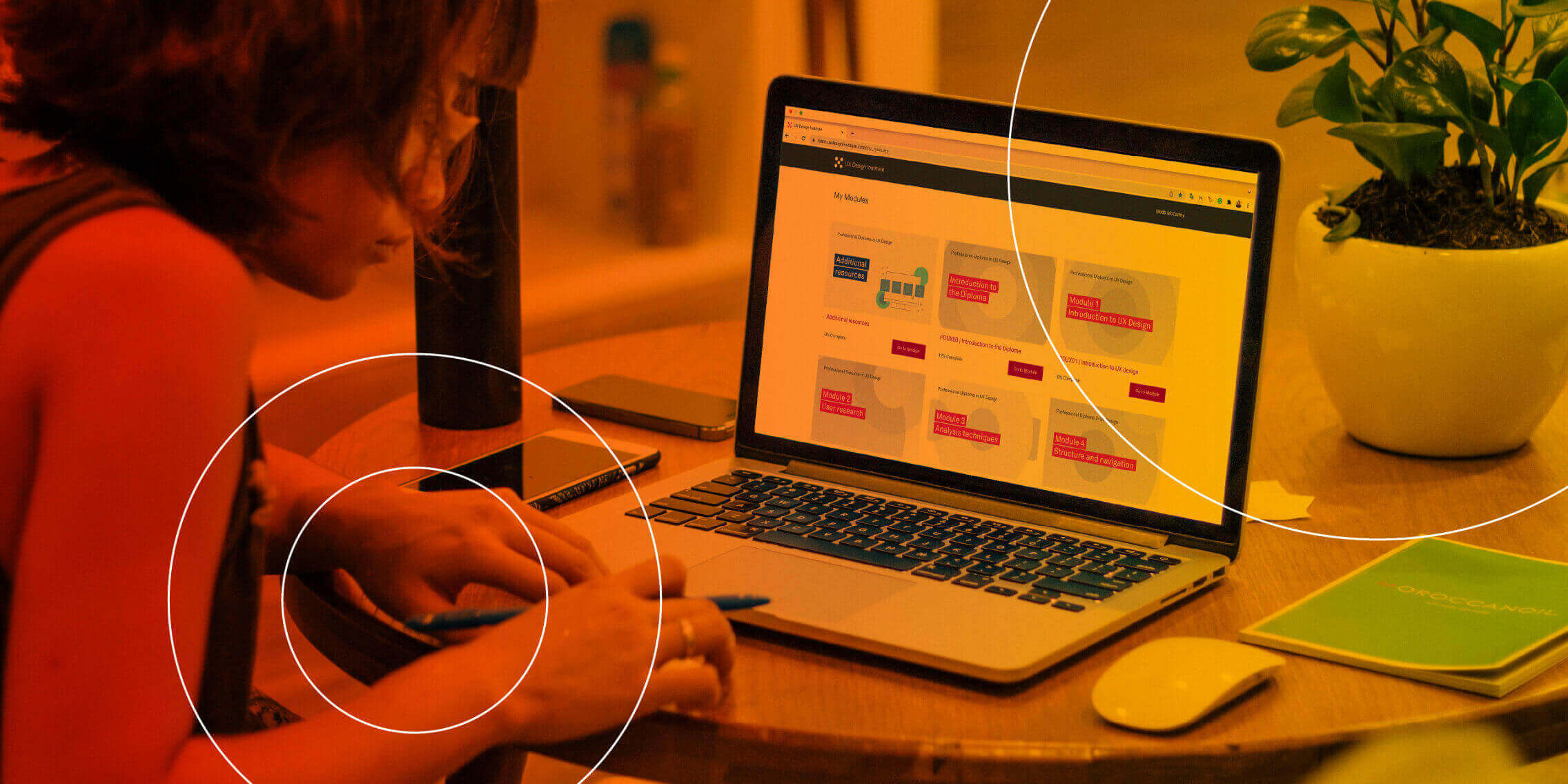Returning to education is always a big step but when you study independently, it can be hard to strike the right balance between your personal, professional and educational life but it is essential that you do. A large number of people who sign up to study UX Design and UI Design courses from the UX Design Institute come from such varying backgrounds.
Whether they’re working full-time or part-time jobs, have family commitments or are managing health issues, one of the biggest challenges all students face is learning how to manage their time without letting their responsibilities elsewhere suffer.
However, there are many ways to avoid stress while you study UX Design and with our advice, you should ace your assignments and enter your new career.
1. This is your time
By signing up for this course, you have chosen to invest in you. With anything, we only get out what you put in and we encourage you to remember why and who you are doing this for. You signed up to this course to further your education and gain the necessary skills to enter the professional industry. This will only happen if you dedicate this time to you. Make the most of this time that will benefit you in the long-run.
2. Embrace the flexible timetable
The course is designed so that you can set your own pace. By having a full year to complete the assignments and exam, you choose when and how often you study. There will be some months when time is not on your side and others when it simply isn’t an issue at all. For example, if you have children and they are on a break from school, you may not be able to work as consistently as you did when they were in school. We encourage you to take advantage of the flexibility to reflect any changes in your lifestyle.
3. Don’t compare
Everybody works differently and our living arrangements, work environment or personal lives all contribute to that. Some students might live alone and can study whenever they like but others may have to accommodate the movements of their housemates before they hit the books. Some people might have been given allocated time from their employers to do the coursework and others have to find the time outside of their 9 to 5. Everyone’s situation will be different so stay focused on you.
4. Don’t get disheartened
When we learn new things, it goes without saying that we will hit a wall at some point. However, don’t give up at the first obstacle. As you test your own abilities and pick up new skills, you will move out of your comfort zone and everything you are studying will soon become second nature. It’s important to remember that if it isn’t challenging you, it won’t change you so embrace the challenges and overcome them one step at a time.
5. Be kind to yourself
If you don’t achieve all of your goals at once, don’t punish yourself. You need to allow for mistakes to happen so that you can learn from them. Everybody will hit rough patches or experience slow weeks at different stages and when you do, adjust your pace once again and figure things out in your own time.
6. Develop a routine
Once you figure out your pace, set a realistic studying schedule. We recommend setting aside an hour every evening so you can steadily work your way through your modules. If you miss one evening, you can make up for it another day or at the weekend. Avoid creating a sense of dread by piling all of your work into one weekend before a massive deadline. Space the workload out evenly so that you don’t feel overwhelmed.
7. Take a break
This may come as a surprise but staring at a screen isn’t always conducive to studying. If you feel like your brain is slowing down, close your laptop and take a break. If you can, go for a walk, find a change of scenery or have a snack; anything that gets you away from a screen. Whether it’s 15 minutes, an hour or even a couple of days, taking a break will help you return to your work with fresh eyes and new ideas.
8. Ask for feedback
If one person finds a part of the course tricky, it’s safe to assume that they’re not the only one to be in that position. Our student success team are there to help you if you reach any stumbling blocks. Reach out to them and ask for feedback if you feel like you’re going in the wrong direction. Don’t make things any harder than they should be and make use of the support services that we have on offer.
9. Find study buddies
In the UX Design Institute student Slack group, you will come across people who are working on the same module as you or managing a similar work-life balance. Connect with them and see if you can create a study buddy system where you check in on each other or give notes. A lot can be achieved by working together or even sharing your struggles. If you see someone that you could work with, don’t be shy and send them a message to introduce yourself. Find some strength in solidarity.
10. Celebrate your achievements
Every win should be recognised. If you finish a module, beat a deadline or even achieve your weekly study plan, give yourself a pat on the back. The further you work your way through the course, you will be amazed by how many milestones you’ve achieved so don’t let them slip away without some acknowledgement.
Looking to learn more about the benefits of online learning? Check out our guide to successful online learning and the top tips you’ll need to keep in mind while you study remotely.




